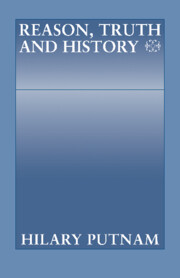Book contents
5 - Two conceptions of rationality
Published online by Cambridge University Press: 05 June 2012
Summary
In the preceding chapters I have spoken of rationality and of ‘rational acceptability’. But rationality is not an easy thing to give an account of.
The problem is not without analogues in other areas. Some years ago I studied the behavior of natural kind words, for example, gold, and I came to the conclusion that the extension of the term is not simply determined by a ‘battery of semantical rules’, or other institutionalized norms. The norms may determine that certain objects are paradigmatic examples of gold; but they do not determine the full extension of the term, nor is it impossible that even a paradigmatic example should turn out not to really be gold, as it would be if the norms simply defined what it is to be gold.
We are prepared to count something as belonging to a kind even if our present tests do not suffice to show it is a member of the kind if it ever turns out that it has the same essential nature as (or, more vaguely, is ‘sufficiently similar’ to) the paradigmatic examples (or the great majority of them). What the essential nature is, or what counts as sufficient similarity, depends both on the natural kind and on the context (iced tea may be ‘water’ in one context but not in another); but for gold what counts is ultimate composition, since this has been thought since the ancient Greeks to determine the lawful behavior of the substance.
- Type
- Chapter
- Information
- Reason, Truth and History , pp. 103 - 126Publisher: Cambridge University PressPrint publication year: 1981
- 2
- Cited by



